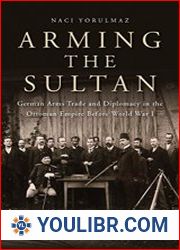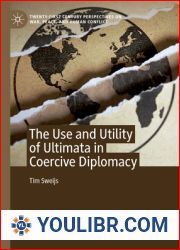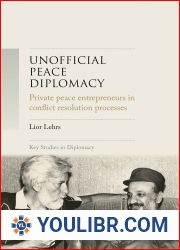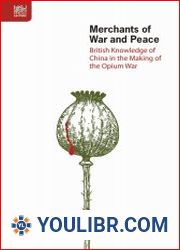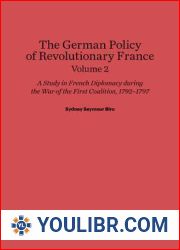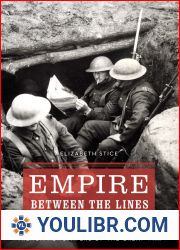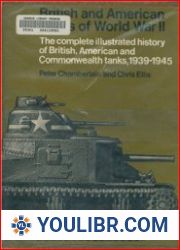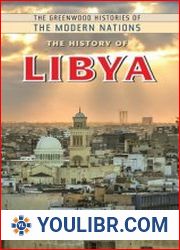
BOOKS - Liberating Libya British Diplomacy and War in the Desert

Liberating Libya British Diplomacy and War in the Desert
Author: Rupert Wieloch
Year: 2021
Format: EPUB
File size: 14,5 МБ
Language: ENG

Year: 2021
Format: EPUB
File size: 14,5 МБ
Language: ENG

The plot of Liberating Libya: British Diplomacy and War in the Desert revolves around the history of British involvement in Libya from the first treaty signed with the rulers in Tripoli in 1692 to recent events. The book is divided into four eras: Era One: Up to the Italian Invasion in 1911 - This era begins with the signing of the first treaty between Britain and Libya in 1692, which marked the start of British involvement in the region. Over time, Britain's interest in Libya shifted from trade to protecting its strategic interests, particularly the control of the Mediterranean Sea. This led to conflicts with other European powers, such as France and Italy, who also had their eyes on the region. The era ends with the Italian invasion of Libya in 1911, which marked a significant turning point in the country's history. Era Two: First World War and Italian Pacification During the First World War, Libya became a key battleground between the Allies (led by Britain) and the Central Powers (led by Germany and Austria). The war had a profound impact on the region, leading to the deaths of thousands of soldiers and civilians and the destruction of infrastructure. After the war, Italy gained control of Libya and established a colonial administration that lasted until the Second World War. Era Three: Western Desert Campaign The Second World War saw the beginning of the Western Desert Campaign, where Britain fought against Germany and Italy for control of North Africa.
Сюжет книги «Освобождая Ливию: британская дипломатия и война в пустыне» вращается вокруг истории британского участия в Ливии от первого договора, подписанного с правителями в Триполи в 1692 году, до недавних событий. Книга разделена на четыре эпохи: Эра первая: до итальянского вторжения в 1911 году - эта эпоха начинается с подписания первого договора между Великобританией и Ливией в 1692 году, который ознаменовал начало британского участия в регионе. Со временем интерес Великобритании к Ливии сместился с торговли на защиту своих стратегических интересов, в частности контроля над Средиземным морем. Это привело к конфликтам с другими европейскими державами, такими как Франция и Италия, которые также смотрели на регион. Эпоха заканчивается итальянским вторжением в Ливию в 1911 году, которое стало значительным поворотным моментом в истории страны. Вторая эра: Первая мировая война и умиротворение Италии Во время Первой мировой войны Ливия стала ключевым полем битвы между союзниками (во главе с Великобританией) и Центральными державами (во главе с Германией и Австрией). Война оказала глубокое влияние на регион, приведя к гибели тысяч солдат и гражданских лиц и разрушению инфраструктуры. После войны Италия получила контроль над Ливией и создала колониальную администрацию, которая просуществовала до Второй мировой войны. Эра Три: Кампания в Западной пустыне Вторая мировая война положила начало Кампании в Западной пустыне, где Великобритания сражалась против Германии и Италии за контроль над Северной Африкой.
L'histoire du livre « Libérer la Libye : la diplomatie britannique et la guerre du désert » tourne autour de l'histoire de l'engagement britannique en Libye, du premier traité signé avec les dirigeants à Tripoli en 1692 aux événements récents. livre est divisé en quatre époques : L'ère est la première : avant l'invasion italienne en 1911 - cette ère commence par la signature du premier traité entre la Grande-Bretagne et la Libye en 1692, qui marque le début de l'engagement britannique dans la région. Au fil du temps, l'intérêt de la Grande-Bretagne pour la Libye est passé du commerce à la défense de ses intérêts stratégiques, en particulier le contrôle de la mer Méditerranée. Cela a conduit à des conflits avec d'autres puissances européennes, comme la France et l'Italie, qui ont également regardé la région. L'ère se termine par l'invasion italienne de la Libye en 1911, qui a marqué un tournant important dans l'histoire du pays. Deuxième ère : la Première Guerre mondiale et l'apaisement de l'Italie Pendant la Première Guerre mondiale, la Libye est devenue un champ de bataille clé entre les Alliés (dirigés par la Grande-Bretagne) et les puissances centrales (dirigées par l'Allemagne et l'Autriche). La guerre a eu un impact profond sur la région, causant la mort de milliers de soldats et de civils et la destruction des infrastructures. Après la guerre, l'Italie a pris le contrôle de la Libye et a créé une administration coloniale qui a duré jusqu'à la Seconde Guerre mondiale. Era Trois : La campagne dans le désert occidental La Seconde Guerre mondiale a lancé la campagne dans le désert occidental, où la Grande-Bretagne a combattu contre l'Allemagne et l'Italie pour contrôler l'Afrique du Nord.
La trama del libro «Liberando Libia: la diplomacia británica y la guerra del desierto» gira en torno a la historia de la participación británica en Libia desde el primer tratado firmado con los gobernantes en Trípoli en 1692, hasta los acontecimientos recientes. libro se divide en cuatro épocas: Era la primera: antes de la invasión italiana en 1911 - esta era comienza con la firma del primer tratado entre Gran Bretaña y Libia en 1692, que marcó el comienzo de la participación británica en la región. Con el tiempo, el interés del Reino Unido por Libia pasó de ser comercial a defender sus intereses estratégicos, en particular el control del mar Mediterráneo. Esto dio lugar a conflictos con otras potencias europeas, como Francia e Italia, que también miraron a la región. La era termina con la invasión italiana de Libia en 1911, que marcó un punto de inflexión significativo en la historia del país. Segunda era: Primera Guerra Mundial y pacificación de Italia Durante la Primera Guerra Mundial, Libia se convirtió en un campo de batalla clave entre los Aliados (liderados por Gran Bretaña) y las Potencias Centrales (liderados por Alemania y Austria). La guerra tuvo un profundo impacto en la región, causando la muerte de miles de soldados y civiles y la destrucción de infraestructuras. Después de la guerra, Italia ganó el control de Libia y estableció una administración colonial que duró hasta la Segunda Guerra Mundial. Era Tres: Campaña en el Desierto Occidental La Segunda Guerra Mundial marcó el comienzo de la Campaña en el Desierto Occidental, donde Gran Bretaña luchó contra Alemania e Italia por el control del norte de África.
La trama del libro «Liberando la Libia: diplomazia britannica e la guerra nel deserto» ruota sulla storia della partecipazione britannica in Libia dal primo trattato firmato con i governanti di Tripoli nel 1692 fino ai recenti sviluppi. Il libro è diviso in quattro epoche: Era uno: prima dell'invasione italiana nel 1911, questa era inizia con la firma del primo trattato tra il Regno Unito e la Libia nel 1692, che segnò l'inizio della partecipazione britannica alla regione. Nel tempo, l'interesse del Regno Unito per la Libia è passato dal commercio alla difesa dei propri interessi strategici, in particolare il controllo del Mediterraneo. Ciò ha portato a conflitti con altre potenze europee, come la Francia e l'Italia, che hanno visto anche la regione. L'era si conclude con l'invasione italiana della Libia nel 1911, punto di svolta significativo nella storia del paese. Seconda era: la prima guerra mondiale e la pace dell'Italia Durante la prima guerra mondiale, la Libia divenne un campo di battaglia chiave tra gli alleati (guidati dal Regno Unito) e le potenze centrali (guidate da Germania e Austria). La guerra ha avuto un profondo impatto sulla regione, causando la morte di migliaia di soldati e civili e la distruzione delle infrastrutture. Dopo la guerra, l'Italia prese il controllo della Libia e creò un'amministrazione coloniale che durò fino alla seconda guerra mondiale. Era Tre: La campagna nel deserto occidentale La seconda guerra mondiale ha dato il via alla campagna nel deserto occidentale, dove il Regno Unito ha combattuto contro Germania e Italia per il controllo del Nord Africa.
Die Handlung des Buches „Liberating Libya: British Diplomacy and Desert War“ dreht sich um die Geschichte des britischen Engagements in Libyen vom ersten Vertrag mit den Herrschern in Tripolis im Jahr 1692 bis zu den jüngsten Ereignissen. Das Buch ist in vier Epochen unterteilt: Ära eins: vor der italienischen Invasion 1911 - diese Ära beginnt mit der Unterzeichnung des ersten Vertrags zwischen Großbritannien und Libyen im Jahr 1692, der den Beginn des britischen Engagements in der Region markierte. Im Laufe der Zeit verlagerte sich das britische Interesse an Libyen vom Handel zur Verteidigung seiner strategischen Interessen, insbesondere der Kontrolle über das Mittelmeer. Dies führte zu Konflikten mit anderen europäischen Mächten wie Frankreich und Italien, die ebenfalls auf die Region blickten. Die Ära endet mit der italienischen Invasion in Libyen im Jahr 1911, die einen bedeutenden Wendepunkt in der Geschichte des Landes markierte. Zweite Ära: Der Erste Weltkrieg und die Befriedung Italiens Während des Ersten Weltkriegs wurde Libyen zu einem wichtigen Schlachtfeld zwischen den Alliierten (angeführt von Großbritannien) und den Mittelmächten (angeführt von Deutschland und Österreich). Der Krieg hatte tiefgreifende Auswirkungen auf die Region und führte zum Tod von Tausenden von Soldaten und Zivilisten und zur Zerstörung der Infrastruktur. Nach dem Krieg erlangte Italien die Kontrolle über Libyen und gründete eine Kolonialverwaltung, die bis zum Zweiten Weltkrieg bestand. Ära Drei: Kampagne in der westlichen Wüste Der Zweite Weltkrieg markierte den Beginn der Kampagne in der westlichen Wüste, wo Großbritannien gegen Deutschland und Italien um die Kontrolle über Nordafrika kämpfte.
''
Libya'yı Özgürleştirme Planı: İngiliz Diplomasisi ve Çöl Savaşı, 1692 yılında Trablus'taki yöneticilerle imzalanan ilk antlaşmadan son olaylara kadar Libya'daki İngiliz katılımının tarihi etrafında dönüyor. Kitap dört döneme ayrılmıştır: Birinci çağ: 1911'deki İtalyan işgalinden önce - bu dönem 1692'de İngiltere ile Libya arasında bölgedeki İngiliz katılımının başlangıcını belirleyen ilk antlaşmanın imzalanmasıyla başlar. Zamanla İngiltere'nin Libya'ya olan ilgisi ticaretten stratejik çıkarlarını, özellikle de Akdeniz'in kontrolünü korumaya kaydı. Bu, bölgeye de bakan Fransa ve İtalya gibi diğer Avrupa güçleriyle çatışmalara yol açtı. Bu dönem, İtalyanların 1911'de Libya'yı işgal etmesiyle sona erer ve ülke tarihinde önemli bir dönüm noktası olur. İkinci dönem: I. Dünya Savaşı ve İtalya'nın pasifleştirilmesi I. Dünya Savaşı sırasında Libya, Müttefikler (İngiltere liderliğindeki) ve Merkez Güçler (Almanya ve Avusturya liderliğindeki) arasında önemli bir savaş alanı haline geldi. Savaşın bölge üzerinde derin bir etkisi oldu, binlerce askerin ve sivilin ölümüne ve altyapının tahrip olmasına yol açtı. Savaştan sonra İtalya, Libya'nın kontrolünü ele geçirdi ve II.Dünya Savaşı'na kadar süren bir sömürge yönetimi kurdu.Üçüncü Dönem: Batı Çölü Kampanyası II. Dünya Savaşı, İngiltere'nin Kuzey Afrika'nın kontrolü için Almanya ve İtalya'ya karşı savaştığı Batı Çöl Kampanyası'nı başlattı.
مؤامرة تحرير ليبيا: الدبلوماسية البريطانية وحرب الصحراء تدور حول تاريخ التدخل البريطاني في ليبيا من المعاهدة الأولى الموقعة مع الحكام في طرابلس عام 1692 إلى الأحداث الأخيرة. ينقسم الكتاب إلى أربعة عصور: العصر الأول: قبل الغزو الإيطالي في عام 1911 - يبدأ هذا العصر بتوقيع أول معاهدة بين بريطانيا وليبيا في عام 1692، والتي كانت بداية التدخل البريطاني في المنطقة. بمرور الوقت، تحول اهتمام بريطانيا بليبيا من التجارة إلى حماية مصالحها الاستراتيجية، ولا سيما السيطرة على البحر الأبيض المتوسط. أدى ذلك إلى صراعات مع قوى أوروبية أخرى مثل فرنسا وإيطاليا، اللتين تطلعتا أيضًا إلى المنطقة. تنتهي الحقبة بالغزو الإيطالي لليبيا عام 1911، والذي شكل نقطة تحول مهمة في تاريخ البلاد. الحقبة الثانية: الحرب العالمية الأولى وتهدئة إيطاليا خلال الحرب العالمية الأولى، أصبحت ليبيا ساحة معركة رئيسية بين الحلفاء (بقيادة بريطانيا) والقوى المركزية (بقيادة ألمانيا والنمسا). كان للحرب تأثير عميق على المنطقة، مما أدى إلى مقتل الآلاف من الجنود والمدنيين وتدمير البنية التحتية. بعد الحرب، سيطرت إيطاليا على ليبيا وأنشأت إدارة استعمارية استمرت حتى الحرب العالمية الثانية. الحقبة الثالثة: أطلقت حملة الصحراء الغربية الحرب العالمية الثانية حملة الصحراء الغربية، حيث قاتلت بريطانيا ضد ألمانيا وإيطاليا للسيطرة على شمال إفريقيا.








 49
49  1 TON
1 TON

